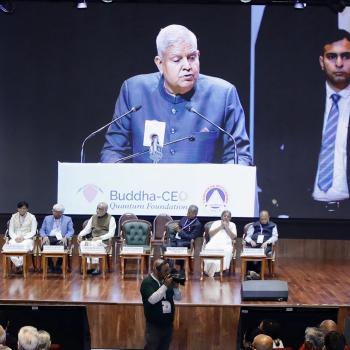As Rahman's explanation demonstrates, the political act of resisting oppression is part of -- indeed, central to -- the Islamic approach to religious tolerance. This view of religious tolerance should not, however, be over-generalized and must involve an analysis of particular situations. For example, superficial judgments by Islamic extremists, such as Osama Bin Laden, that Jews and Christians oppress Muslims in various parts of the world and should therefore be fought may seem to fit Esack and Rahman's connection of social oppression to religious intolerance. However, even a mere cursory analysis of the issue reveals that it is over-simplistic to equate the acts of some Christians and Jews to all Christian and Jews. It is, moreover, logically and theologically problematic to equate the political acts of some individuals with their religion or religious beliefs. [5]
In the modern age, the analysis of the "other" -- whether that "other" be the non-Muslim, the non-Christian, the non-Jew, the non-Hindu, etc. -- must be nuanced, careful, and deliberate. Revisiting the historical context and theological basis of religious tolerance prompts a renewed focus on rooting out oppression. Mere "tolerance" is not enough; Muslims should unite with people of other religions and work toward the common goal of justice.
1 Khalid Abou El Fadl, And God Knows the Soldiers: The Authoritative and Authoritarian in Islamic Discourses (University Press of America/Rowman and Littlefield: Lanham, 2001).
2Abdullahi An-Na'im, Toward an Islamic Reformation: Civil Liberties, Human Rights, and International Law (Syracuse University Press: New York, 1996).
3 This is not to say that America has ever been a theocracy like the Islamic Empire.
4 Farid Esack, "Muslims Engaging the Other and the Humanum," 14 Emory Int'l L. Rev. 529 (2000).
5 This argument suggests that it may be better for countries, such as America, not to hold themselves out to the world as "Christian nations" because to do so may imply that their political acts are defined by their religious beliefs. Political opposition to a Christian nation may then be manifested in terms of religious intolerance and may affect the plight of Christians in non-Christian countries. This process may explain some cases of discrimination against Muslims in non-Muslim countries when a predominantly Muslim country makes a controversial political move.
Asma T. Uddin is Editor-in-Chief of Altmuslimah. This article was previously published in the Review of Faith and International Affairs and is reprinted here with permission of the author.
Reprinted with permission from Altmuslim.com




